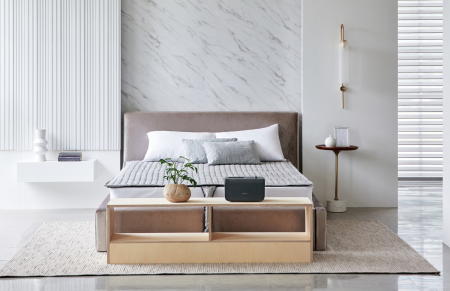Your skin is the largest organ of your body and it needs care. That’s why you spend so much time in front of the mirror every morning, trying to figure out how to make your skin look its best. You may be surprised to find that one of the biggest secrets for better-looking skin might be as simple as getting more sleep! In this article, we will discuss some natural ways that you can improve the health of your skin by sleeping well at night.
There’s a lot of science that backs the idea that sleep is important for optimal skin health. Sleep helps you produce collagen, which makes your skin more elastic and less wrinkled over time. This happens during stages three and four in deep REM sleep.
You can help your daytime skincare routine by getting more sleep, but there are some other steps that you can take to level up your beauty sleep game.

How sleep affects your skin
You can always tell when a person lacks sleep just by the tell-tale signs on the skin. We all have those days where we stay up late to watch TV or work on the computer, and we think nothing of it when morning comes around – until our friends tell us how exhausted we look!
Dr. James Mays, the founder of DermaDiagnostic and a dermatologist in Atlanta, Ga., says that skin cells are regenerated at night when we sleep.
“We think about 80% of collagen production occurs during sleep — so if you have poor quality or quantity, then you’re going to see it on your face,” he said. (Source: Dermatology Times, March 2013)
Studies even suggest that people who don’t sleep well may be more susceptible to breakouts. The lack of REM (Rapid Eye Movement) sleep reduces the production of natural oil in the skin called sebum which helps regulate moisture levels and prevent acne-causing bacteria from getting into hair follicles.
Ways to Amp Up Your Skincare
1. Keep synthetic fabrics off your bed
Dermatological experts believe that sleeping on a silk pillowcase is good for the skin because it’s so smooth and resists wrinkles. You also want to avoid synthetic fabrics like polyester or even nylon against your face while you sleep. The chemicals in these materials may cause excessive oil production if placed too close to the pores of your skin. When choosing sheets, you should opt for organic cotton or linen fabric since they’re softer and breath better than many synthetics.
Navien Mate uses only 100% pure cotton without fluorescent bleaching and dyeing treatment. Our bed warmers have been rigorously tested to ensure that they meet the FDA standard and have passed both the Primary Skin Irritation Test and the Cytotoxicity Assessment, so you can rest assured that it’s gentle on your skin.
2. Keep yourself hydrated — but avoid caffeine!
It’s important not only what we put ON our bodies before bed, but what we put in. Keep yourself hydrated with water or a sleep tea like chamomile.
You also want to avoid drinking anything with caffeine in it after dinner. You might have some trouble falling asleep if you drink coffee, green tea, cola drinks, and the like.
3. Watch your pre-bedtime eating habits
As for food before bedtime, try not to overeat close to bedtime as your stomach will be working overtime digesting all that food while trying to unwind from the pressures of daily life – which only adds more stress on our skin’s natural recovery process.
4. Sleep with your head elevated
Making sure your head is elevated when you sleep can greatly help with snoring, acid reflux, and nasal drip — all issues that can disturb the quality of your sleep, and therefore your skin. In addition, elevating your head improves blood flow and prevents blood from pooling, thus reducing bags and circles under your eyes.

Developing healthy sleep habits will not only keep your skin glowing and looking youthful, it’s about maintaining your health in body, mind, and skin for years to come.








